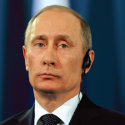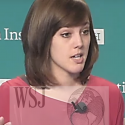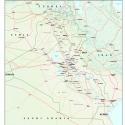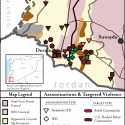Webcast: ISW President Kimberly Kagan Speaks at Town Hall
Mar 19, 2018 - ISW Press
Watch ISW President Kimberly Kagan speak at a March 19, 2018 town hall discussion on Syria and failing and fragile states for Public Radio International.

Watch ISW President Kimberly Kagan speak at a March 19, 2018 town hall discussion on Syria and failing and fragile states for Public Radio International.

If Putin's March 2018 election fails to meet the Russian president's own standards for success, it may cause reverberations in his foreign and domestic policies. U.S. decision-makers must therefore focus on the nuance behind the "election" results, Nataliya Bugayova writes in an essay for Fox News.


Iraqi Vice President Ayad Allawi is presenting himself as a viable Shi’a reformist alternative to Prime Minister Haider al-Abadi in the upcoming Iraqi legislative elections slated for May 12, 2018. Allawi will likely leverage his opposition to the expansion of the Iranian influence in Iraq, reformist stance and support for the Kurdistan Regional Government (KRG) to draw Shi’a Sadrist and some Kurdish support in the post-election premier selection phase.

Afghanistan’s powerbrokers are in the early stages of an intense competition as they prepare for the planned 2019 presidential election. The multi-month disagreement between President Ashraf Ghani and warlord and long-time Balkh Province Governor Mohammad Atta Noor over the latter’s governorship is the first stage of a much larger battle between the two politicians for the presidency.
Russia is a poor country—its economy is roughly the size of Italy’s on a bigger population and a vast territory—and conventional warfare is exceedingly expensive. That is why Russia’s Vladimir Putin has opted for hybrid warfare whenever possible—it is the manner of fighting best suited to the brilliant poor.
The U.S. faces three, interlocking competitions that will determine the future of the international order. The competitions pit America, its allies, and its partners against: the revisionist powers in Russia, China, and Iran; the revolutionary powers in the global movement animated by groups like al Qaeda ISIS; and the rogue power in North Korea. Success for the U.S. will require wrestling with all three competitions simultaneously and leveraging progress across them.
Any U.S. strategy relying on a partnered force must proceed from a realistic assessment of its capabilities and intentions. The Institute for the Study of War completed an Order of Battle study to evaluate the capabilities and disposition of the ISF. This study also presents an Order of Battle of the PMF to help U.S. decision makers and forces on the ground recognize and remediate the presence of Iranian-backed militias within the ISF.

Al Qaeda is growing stronger in Southern Syria. An assassination campaign targeting mainstream opposition commanders and governance officials is facilitating al Qaeda’s consolidation of power along the borders of Jordan and Israel. Southern Syria stands at increasing risk of becoming a second Idlib Province, which currently serves as a formidable safe haven for al Qaeda.